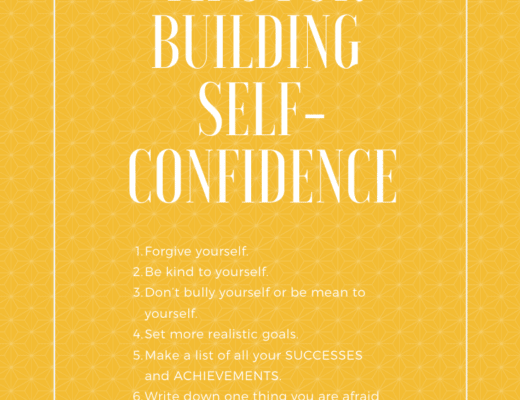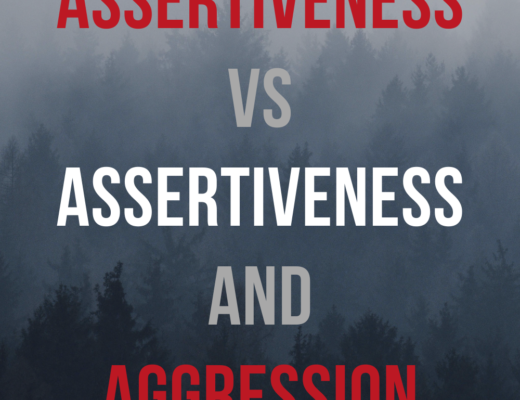15 tips to unlock your full potential and become your best self.
Are you facing challenges in letting go of self-doubt? You are not alone.
Many people lose self-confidence when facing a new responsibility or tackling the happenings of everyday life.
This is characterized by procrastination and anxiety among other emotionally-destabilizing feelings.
If not addressed, self-doubt can lead to imposter syndrome, low quality of life, and even hinder you from taking big strides in your career.
To lift your spirit and help you face life boldly, this post looks at 15 tried and tested methods of letting go of self-doubt.
Related Posts
What is self-doubt?
Self-doubt is the feeling of being unsure about the happenings in your own life. This state of mind can manifest in your decisions, beliefs, and opinions. Characterized by a general feeling of instability, self-doubt can lead to low self-esteem and failure.
The reality is that such uncertainty makes people afraid and unable to chart paths to success. As William Shakespeare aptly put in the play Measure for Measure, “Our doubts are traitors, and make us lose the good we oft might win, by fearing to attempt.”

Is feeling self-doubt a result of fear?
First off, self-doubt is not an innate feeling but rather an emotion that you learn as you grow. The deduction is best exemplified by observing the development of kids.
Children are born confident and show it in the way they talk and attempt feats that are beyond their strengths. But a scrape here and a fall there starts eating away on their confidence.
This kind of fear comes with past failures and is responsible for undermining your natural confidence. You can also pick up fear and self-doubts from those close to you.
For example, every time a friend tells you that your driving is bad, your inner voice begins to associate driving with negative consequences.
As such, fear and self-doubt have a direct relationship; fears can cause self-doubts and self-doubts can result in real or imagined fear.
What are the signs of self-doubt?
It is not easy to overcome self-doubt if you do not know the signs associated with the condition. More often than not, we learn to live with our lack of confidence by cloaking doubts with other seemingly agreeable habits.
However, to take full control of your destiny and be successful, you need to let go of excuses and quieten your inner critic. That said, you can start by identifying the following signs associated with self-doubt:
Procrastination
If whenever you are faced with a challenging situation you find it easy to postpone making a decision, then you are a procrastinator. This is a defensive mechanism in your psyche to avoid facing your doubts.
Lack of focus
How long does it take to be comfortable about a decision? Most people experiencing self-doubt go over and over a single idea, and instead of working on it, they always try to come up with a better option. This can be cloaked as brainstorming, but the simple fact is that they lack focus in taking the first step to moving forward.
Loss of clarity
Ask a kid what they want to be when they grow up and you get straight answers. Ask the same question when they are in their teens and you start getting multiple variables. What changed? The truth is that past worries and failures lead to a loss of clarity on the way forward.
Constant comparisons
When in doubt, the correct response should be to iron out the issues that cause the indecision. The solution can, however, turn to self-doubt if you resort to constantly comparing your ideas to those of other people. Note, it is okay to strive for success, the problem arises when every step you take has to be comparable to other peoples’.

How to overcome self-doubt
Self-doubt can and will derail your progress due to self-handicapping brought about by low esteem.
Research concurs that “Unless steps are taken to set aside or alleviate the feelings of doubt, self-esteem may be damaged and decline” (Anthony, Geoffrey, & Robert, 2002).
So, how do you overcome self-doubts and realize your full potential?
Here are some pointers:
#1 Identify and overcome limiting beliefs
Overcoming doubt starts with identifying beliefs that do not lead to your own happiness or growth. As far as beliefs go, anything that limits your own progress should take a back seat.
Access your life for values that make you better and worthy. The idea is to stick with beliefs that eliminate the fear of failure. Examine your emotions, identify, and let go of beliefs that derail your daily roadmap.
Once you overcome such beliefs, it becomes easy to channel confidence and self-worth. This has the upside of taking criticism and mistakes in stride.
#2 Accept your fears
When you experience feelings of doubt, it is worth remembering that no one is perfect. Just as you embrace your pride, accept your fears as part of life. Face doubt as you do daily obstacles of being human.
This will help you curb your fears before they become internalized psychologically.
What should worry you most is letting doubt cloud your thoughts and make you feel like a fraud. Own your fears as a step forward in avoiding imposter syndrome, also known as the fraud syndrome.
#3 Practice self-compassion
A simple way to overcome self-doubt is by first becoming your greatest fan.
Why? A loyal fan cheers for their team when they win and criticize them for losses, but most importantly, they never abandon the team.
As your own cheerleader, it becomes easy to face your inner critic with the hope that a win is just around the corner. The trick lies in being compassionate about yourself, making it easy to identify and fill gaps in your abilities.

#4 Work to reduce your self-doubts
“We are what we repeatedly do. Excellence, therefore, is not an act, but a habit.” This timeless wisdom is attributed to the ancient Greek philosopher Aristotle.
It is a one-line reminder that success is the sum of the little things that you do every day. So, if your doubts are becoming more frequent, then you are regularly, subconsciously or otherwise, doing something wrong.
It could be a failure in your thinking, work ethics, talk, or even a relationship. With this in mind, you should constantly work to overcome every instance of self-doubt.
#5 Stop people-pleasing
Are there people who drain your self-worth? Woe unto you if you try pleasing such people!
Usually, these are friends or family members whom you can never measure up to. They downgrade your achievements and marvel at your failures.
Pleasing them is next to impossibility and every attempt is another reason to doubt yourself.
I say, cut them off! You alone are responsible for your own happiness and you have no obligation to make others share in your joy- or sorrows for that matter.
#6 Keep the company of supportive people
Meditating on the socialness of humans, 17th century English poet John Donne wrote: “No Man Is an Island”. The prose expresses the need for people to seek companionship in order to thrive.
It is true that you are a social creature no matter how introverted you try to be. But this isn’t a license to let people with negative energy drain you!
To overcome self-doubt, keep the company of people who offer positive criticism and support.
#7 Stop comparing your life with others
Before you are a social creature, you are an individual.
Remember this when life throws you people who are more accomplished or grounded than you. While it is okay to look up to successful people, don’t give way to their exploits to belittle yours.
Here is a thought: Instead of trying to measure up to others, why not better the worse versions of yourself to use as future comparisons.
#8 Celebrate success and remember past wins
To overcome self-doubt, beware of emotions such as envy and resentment that can have negative consequences on your quality of life.
Start by celebrating your own success, no matter how small the achievement is. This will boost your self-esteem and make it easy to applaud others for their triumphs, as opposed to resenting them.
And when your mind starts wandering from the right direction, remember past victories.

#9 Mind your thoughts
Do not become used to negative thoughts. Keep off thoughts of failure or any mindset that makes you lose confidence in the face of challenging situations.
If not, such thinking becomes deeply entrenched changing your character and taking you a step closer to resigning to imposter syndrome.
Whenever a thought starts making you feel uncomfortable, take a moment to think of the consequences. As you weigh your options, opt for a solution that pushes you closer to your goals.
#10 Live in the present moment
A witty way of ensuring that your own experiences of past doubts do not affect your current actions.
By focusing on the task at hand, your mind can let go of feelings that pull you down or distract you from success.
To quote Buddha, “the secret of health for both mind and body is not to mourn for the past, not to worry about the future, or not to anticipate troubles, but to live in the present moment wisely and earnestly.”
#11 Silence your inner critic
It is easier to brush off criticism from other people than to shut down your greatest critic- you! After all, you are with your thoughts 24/7 and if left to run wild, your doubts will cripple you.
Words are powerful and they can shape your reality. As such, get used to telling your inner critic to stop holding you back.
Take a cue from the stars of Disney’s Luca who give a name (Bruno) to their self-doubt and learn to silence it.
Silenzio Bruno!
#12 Keep off naysayers
As I have pointed out, it can be easy to tell off critics. Nevertheless, this is easier said than done.
Naysayers are not just the friends who try to steer you into their way of thinking, this is a broad group that includes news, TV shows, films, and social media.
The adage “you are what you eat” comes into mind.
Words feed thoughts so, pay close attention to what you listen to and watch. When you are not feeling confident, stick to uplifting news, motivational podcasts, and social media posts that help you to focus on the positive aspects of life.

#13 Exercise
Chances are that when overcome with doubts, you usually retreat- both physically and mentally. Exercise can help jog you from such an unpleasant state into one of vigor and optimism.
The benefits of jogging, cycling, dancing and even gardening have been investigated extensively by scientists. One such research published in The Journal Of Clinical Psychiatry notes that:
“Exercise improves mental health by reducing anxiety, depression, and negative mood and by improving self-esteem and cognitive function”, (Ashish, Vishal, & Frederick, 2006).
This is a call to action to get off the couch and engage your body as a way of improving your psychological health.
#14 Be more skillful
Sometimes self-doubts result from incompetence. This is usually the case when most of your fears happen at work. The mere thought of a task makes you afraid and feels like an invasion into your comfort zone.
In such a situation, letting go of self-doubt is a simple case of becoming more competent. It helps to commit your free time to learning a new skill or perfecting what you already know.
Get trendsetters in your line of work to give you pointers. Luckily, the digital age is here and you can master new abilities online through remote mentorship programs.
#15 Seek professional help
If all of the above fails, then it is time to seek professional help.
Persistent self-doubt can be weakened by practicing positive things as advised by a mental health expert. Don’t expect to get a self-doubt pill, but rather DIY steps that make you feel confident.
You’ll be guided on how to identify weaknesses, modify destructive behavior, and let go of fear. Your therapist can also help you practice meditation for success and self-compassion.

What is self-doubt a symptom of?
Self-doubt is a sign that you are unable to face challenges or adapt to changes in what you consider normal. It is a feeling of inadequacy in the self, making coping with new scenarios difficult. Left unsolved, doubts can alienate you from a good friend, family, and co-workers.
Is self-doubt a mental disorder?
By itself, self-doubt is not a mental disorder but rather a natural response to past mistakes or perceived limitations. The real problems manifest when you are unable to let go of the doubts, opening the door for mental issues such as anxiety, depression, panic attacks, and loneliness.
Conclusion
Self-doubt is a real detriment to living a fulfilling life. The fear it creates can lead to irrational behavior that can easily derail your career, relationship, marriage, and friendships. In worst cases, doubts can morph into feelings of being a fraud, also known as imposter syndrome. Simply put, self-doubt can make you question everything from your looks to your abilities.
To overcome, start by identifying the symptoms and follow by the desire to move forward. Do not resign to the feeling but rather prepare your mind by silencing the doubts and following the steps outlined above.





